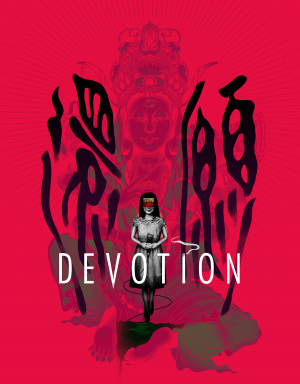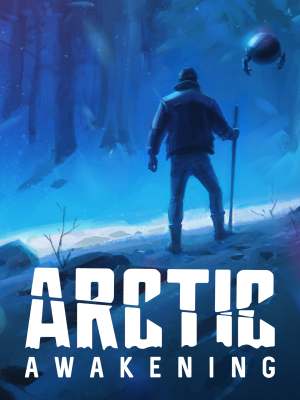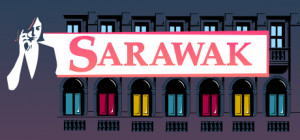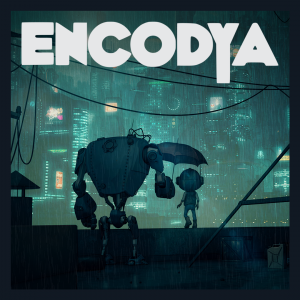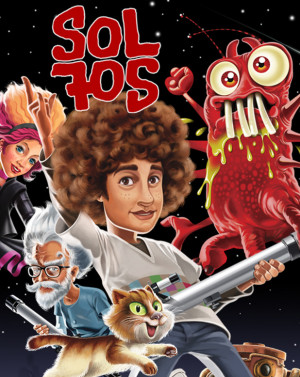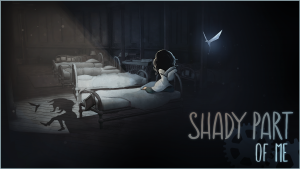Review for Devotion
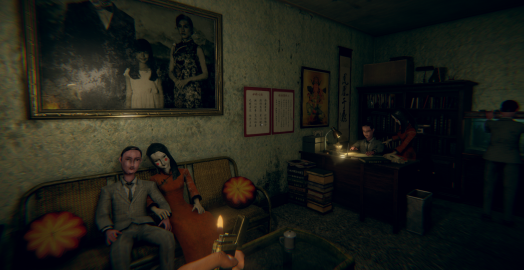
What a long, strange trip it’s been. After Red Candle Games flew out of the gate with Detention, their acclaimed 2017 horror adventure, expectations were sky-high for the Taiwanese studio’s next project. Two years later it arrived in the form of Devotion, an exploration-based horror title inspired by recent first-person hits like P.T. and What Remains of Edith Finch. A few days after its debut, however, a background asset was found to contain an unflattering reference to China’s Xi Jinping, and a subsequent review-bombing campaign along with negative media attention led Red Candle to pull the game from digital storefronts with a promise to remove the offending text (a placeholder, the company said, which they hadn’t meant to include).
And then, for two years ... nothing. International distributors appeared unwilling to touch the game in light of the controversy, and after a near-miss in 2020, with one major online storefront abruptly reversing course on its stated intention to release it, the prospects for Devotion’s return outside of Taiwan seemed dim. Fortunately, all that changed with the surprise announcement in early 2021 that Red Candle would distribute the game themselves through their company website, and for those who’d given up hope of ever playing Devotion it was now suddenly just a few clicks away.
And so, the question: was it worth the wait? The answer may depend on what kind of scares you prefer a game to deliver, but there’s no doubt that Devotion is a polished, unsettling journey into the heart of despair, denial, and delusion, and that it further helps establish Red Candle Games as a horror gaming powerhouse.
Devotion casts players in the first-person role of husband and father Du Feng Yu, now alone as he explores what appears to be an altered version of the apartment complex where he and his family once lived. The single floor to which Feng Yu is apparently confined contains three separate versions of his old family home, each marked with the year it represents: 1980, 1985, and 1986. All three appear empty, save for the voices that echo in Feng Yu’s memory when he handles certain objects or arranges the decor to more closely match his recollections. There’s also a fourth apartment, bearing no number, which he recalls as having been significant to him; he can’t remember why, though, or how to get inside.
But then, there are a great many things that Feng Yu can’t remember. He knows he was married to Gong Li Fang, a superstar singer/actress who left her career behind to raise their daughter, Mei Shin. He knows his own career as a screenwriter was suffering, and that his insistence on acting as sole breadwinner caused tension in his marriage. And he knows Mei Shin suffered from a mysterious illness whose symptoms would come and go without warning, and which threatened her own dreams of becoming a singer. But where are they now? Why is he here, in this place that seems like home but isn’t? And who—or what—is following him in the flickering darkness of the hallways?
At first you’ll travel in linear fashion from one apartment to another, with the front door in 1980 opening directly onto the apartment from 1986 and so forth, but eventually you’ll reach a main hub that allows you to move freely between all three (as well as to the mysterious locked door). Your main task in each year’s version is to put things back in their proper places to complete Feng Yu’s memories, with the furnishings and attendant tasks shifting to match the year in question. In 1980, for instance—the year the family first moved in—you’ll start out amidst packed boxes and bare surfaces; placing objects you find lying about back into their correct surroundings causes furniture and additional decor to materialize, showing the apartment as it looked once the move was finished. 1985 and 1986 will introduce additional tasks related to Mei Shin’s health and her hopes for a singing career, as well as Feng Yu’s growing attachment to the teachings of Mentor Heuh, a member of a religious sect who lived upstairs.
When you’ve run out of things to do in a given apartment you’ll usually be prompted to explore another; on your return you’ll find the first has changed to reflect another moment from its corresponding year, with new puzzles and prompts to match. This not only provides for an interesting approach to nonlinear storytelling—at times you’ll move from 1985 to 1980 and on to 1986—but it makes the game feel much larger and more varied than it might have otherwise. I was surprised upon finishing to realize that there had only really been three or four different locations in the whole game, as the thought hadn’t occurred to me while playing.
Most puzzles involve finding an out-of-place object, taking it to where clues suggest it ought to be, and then watching as the apartment transforms to match the new context you’ve helped Feng Yu to see. That’s not to say the puzzles are overly simple; there’s a certain nightmare logic inherent in the setting, and there are times when you’ll have to do some thinking to determine the exact nature of what’s missing or where something you’ve found should go. There’s also a surprising sequence midway through in which the gameplay shifts to evoke a side-scrolling third-person adventure as Feng Yu remembers reading his daughter’s favorite bedtime story, and at another point you’ll have to solve a child’s maze toy that you’ve reconstructed. There are also some logic puzzles that require you to search the scattered notes and journal entries you’ve come across for clues to open combination locks and to perform certain religious rites.
Controls in Devotion are straightforward; both gamepad and mouse/keyboard are supported, though I found the first provided a smoother experience. Navigation is simple, with one joystick (or WASD) controlling movement and the other (or the mouse) handling your field of view. Your inventory and collection of notes, photos and other scraps open in separate menus, each with its own dedicated button; the former allows you to scroll through your acquired items and to use them in the environment when needed, while the latter allows you to take a closer look at the text and images you’ve found. On-screen prompts pop up to identify hotspots as you approach them; using an object you’ve picked up in the environment requires first opening the inventory menu and selecting it for use there. You also acquire a lighter early on, which you can open and close at the press of a button to help you see better in the dark, and which helpfully never runs out of fuel.
The dark is a constant presence throughout Devotion, and it’s used to great effect. One thing Red Candle understands well is the difference between what might generally be called terror—the hot, urgent heart-pounding fear one feels when being chased, threatened, or surprised—and horror—the slow, mounting unease that grows and metastasizes alongside the suspicion that one may already be doomed. Devotion is much more concerned with the latter than the former, as apart from a few sudden shocks and one high-stress chase sequence you won’t find yourself in much imminent danger. Instead, the overwhelming emotion you’ll feel as you play is gnawing, uncomfortable dread. Feng Yu suspects that he’s forgotten something terribly important—that the pieces missing from his spotty recollections add up to something awful and unavoidable—but worse than that is the growing uncertainty as to whether there’s still time for the knowledge to matter.
Every aspect of the environmental design is calculated to communicate that sense of encroaching, inescapable wrongness: the dark colors and low lights, the dusty signifiers of happy domesticity found moldering in corners, the crackling feedback of interrupted TV signals and the discordant melodies of music playing on faulty equipment. The graphic and sound design are both outstanding, with the visuals achieving a smooth photorealism that belies the increasingly bizarre nature of the imagery and the audio calculated perfectly to unsettle your nerves. Music is a constant presence in the apartment via radio broadcasts, Li Fang’s recordings, and playback of Mei Shin’s participation in a TV singing competition. These and other sounds present the illusion of vitality and warmth, only to suddenly warp and distort, speeding up into an artificial treble and slowing down to a molasses-slow rumble before dissolving into static. It all serves to place further distance between Feng Yu and the life of peace and prosperity he’d hoped to build in this place.
Figures sometimes appear in the darkness for a second or two, but they’re there and gone so quickly that you won’t have a chance to register who or what they might be; other than these, you’re alone. When the protagonist’s memories play out, it’s inevitably in the form of his loved ones’ disembodied voices, sounding as if they’re standing just behind him or around the corner. (The spoken dialogue is in Mandarin, but subtitles are available in English, Japanese, and Korean.) You’ll glimpse them in photographs or in (live-action) clips that sometimes play on the apartment’s TV, but you’ll never get a chance to see or interact with them directly except in fleeting, out-of-focus glimpses. The closest you’ll get to real-time human connection comes in the form of crudely carved mannequins that infrequently appear to depict Feng Yu and Li Fang engaged in household activities, with a porcelain doll in the role of Mei Shin. These show up without warning, and while they’re not exactly threatening, their lifeless, uncanny stares only add to the sense of disquieting wrongness.
The oppressive atmosphere builds slowly and steadily for most of the game, like a simmering pressure cooker. It’s a deeply personal experience, with most of the scares and foreboding moments tailored directly to Feng Yu’s anxieties, regrets and insecurities. This is what Devotion does best, and the few times it tries to switch gears from intimate horror to sudden screaming terror don’t entirely work in context. Feng Yu has many things tugging at his frayed nerves, but fear for his personal health and safety isn’t one of them, so the aforementioned chase sequence that sees you running for your life from a demonic entity feels out of place and not entirely in keeping with the game’s themes.
Unlike every other apparition you’ll encounter, this creature can actually catch and kill you. It’s an ultimately minor inconvenience, as you’re just dropped back to a recent autosave if that happens, but it feels so sudden and not in keeping with what’s come before that it’s more distracting than frightening. Up to that point and then again after it, Devotion’s scares are firmly of a psychological, emotional, and even spiritual stripe; it isn’t a “run and hide from the hungry monster” type of game. Suddenly changing to behave like one, only to immediately abandon the approach, feels like a miscalculation by a team that otherwise understands how best to get under the player’s skin.
Devotion is quite short, clocking in for me at just over three hours. The story it tells doesn’t require any more time than that, however, as most aspects are given just enough space to feel suitably explored without overstaying their welcome. The lone exception is perhaps the player’s own role as Feng Yu. The game certainly provides a strong sense of who he is and what his life is like through the notes, memories, and environmental details you uncover, but as I wandered the hallways I found myself wishing I knew more about his thought process than the game afforded. This is one place where Devotion feels like a step backward from Detention, which allowed you to fully inhabit the role of its gregarious protagonist, Fang Ray-shin. Here Feng Yu shares very little of himself in the present outside of brief on-screen descriptions of items and hotspots. As so much of the game involves sifting through his past feelings and memories, I would have liked more access to the emotions they brought up for him in the moment. As it is it felt less like he was directly present with me and more like he, as with Li Fang and Mei Shin, was a character in a story I was learning about secondhand.
Of course, being “a step backward from Detention” isn’t such a bad thing; rather, it places the game in rarefied company. Devotion, while undoubtedly different from its predecessor in many respects, is similarly artful and engaging in the way it covers its new territory. It’s a heavy game, one that peers deeply into the dark corners of the human heart, and well-suited to those who prefer horror to disturb more than it thrills. If that doesn’t sound like you, you might want to give Devotion a miss; otherwise, whether you’ve been impatiently awaiting it for two years or this is the first you’ve heard of it, you’re advised to snap up this strong sophomore effort from Red Candle Games before it has a chance to disappear again.
Our Verdict:
Devotion’s tale of fractured memories and buried secrets provides a dark, compelling look into the depths of human frailty and desperation. It doesn’t quite reach the heights its developer achieved with Detention, but it’s a well-crafted first-person journey to a strange and unexpected place.


